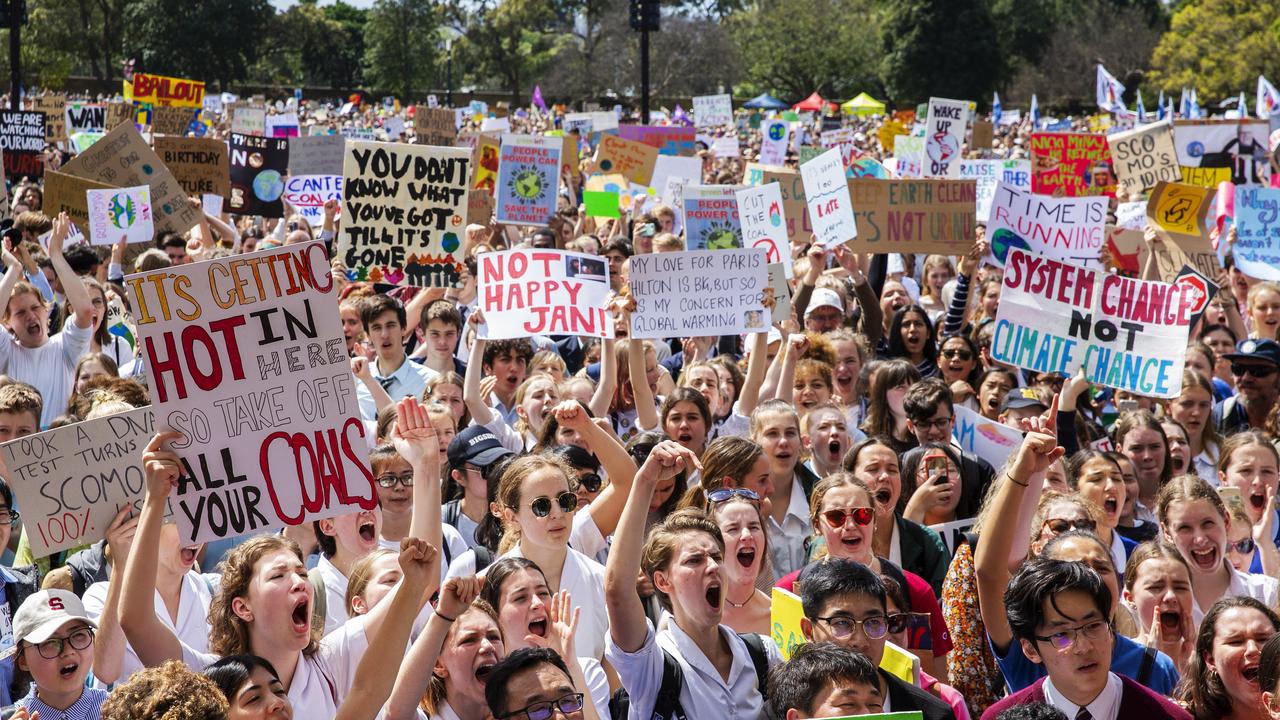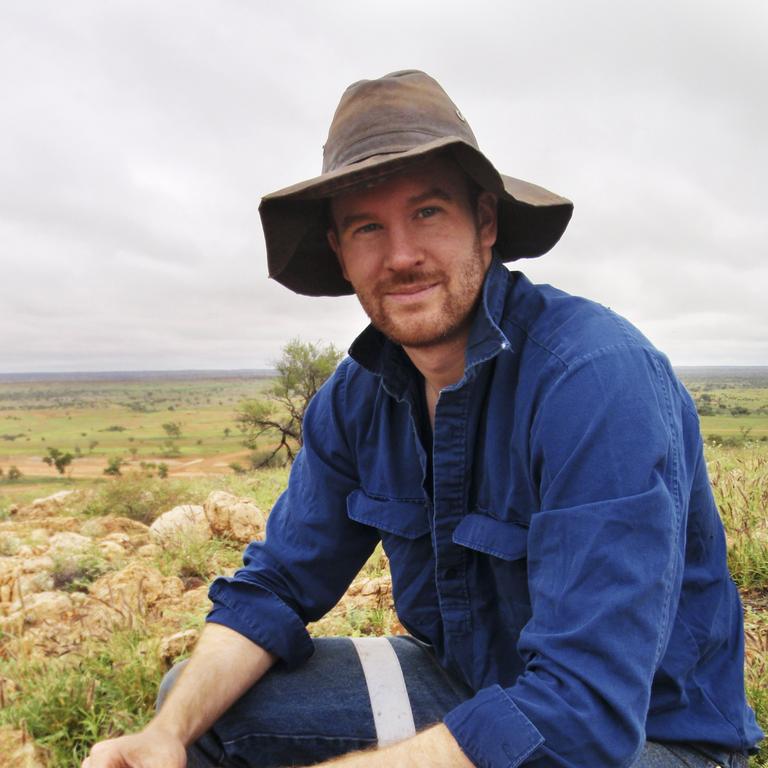11,000+ strong coalition calls for climate emergency declaration to transform society and address climate change
More than 11,000 scientists have united to deliver a grim warning about our future on earth unless drastic action is taken.
Eliminating subsidies to fossil fuel companies, restoring forests, eating more plants and wasting less food, having fewer children and abandoning an obsession with economic growth are among some of the recommendations from a new report cosigned by thousands of scientists warning of a climate emergency.
11,263 scientists from 153 countries have joined together to endorse the declaration of a climate emergency, offering six clear measures they believe could avoid “untold human suffering” as a result of climate change.

The group said the declaration is based on the scientific analysis of more than 40 years of publicly available data on energy use, surface temperature, population growth, land clearing, deforestation, polar ice mass, fertility rates, GDP and carbon emissions from around the world.
It provides what the coalition calls “six clear measures” where immediate steps must be made to slow down the pace of climate change, relating to energy, pollution, land use, food, the global economy, and population.
While they said the planet is facing a climate emergency, they concede getting governments to act is going to be a tricky sell, and will involve “transforming the ways we govern, manage, eat, and fulfil material and energy requirements”, but there have been some signs of progress.
“We are encouraged by a recent global surge of concern. Governmental bodies are making climate emergency declarations. Schoolchildren are striking. Ecocide lawsuits are proceeding in the courts. Grassroots citizen movements are demanding change, and many countries, states and provinces, cities, and businesses are responding,” the paper reads.

While governments and businesses are responding to climate-concerned boycotts and protests around the world, Prime Minister Scott Morrison recently announced he wants to prevent Australians exercising their right to engage in similar action, though how the government plans to do so remains to be seen, if such a practice ever actually eventuates.
University of Sydney school of environment and life sciences Dr Thomas Newsome, one of the lead authors of the warning, is one of many accomplished Australians who have voiced opposition to the proposal.
“I think the growing concern about inaction to reduce greenhouse gas emissions is causing people to speak out in many different ways. Peaceful protesting and joining the strikes is one way to send a message, and people have the right to do so,” Dr Newsome told news.com.au.
Dr Newsome is one of five scientists from the University of Sydney, Oregon State University, University of Cape Town and Tufts University who authored the warning, published today in the journal BioScience.

“From the data we have it’s clear we are facing a climate emergency,” Dr Newsome said. “Scientists have a moral obligation to warn humanity of any great threat,” he added, though he also sought to avoid being dismissed as yet another doomsayer.
“While things are bad, all is not hopeless. We can take steps to address the climate emergency,” Dr Newsome said.
“Some people may not think they can make a difference, but lots of small changes can inspire larger scale shifts in policy and economic frameworks,” he added.
“Because the impacts of climate change are becoming more obvious and damaging, for example record heatwaves and increasing extreme weather events, it is likely that people will start to pay more attention and urge governments, policy makers and the business community to take action,” Dr Newsome said.

But there’s more to measure than just the temperature of the earth, and Dr Newsome said a “broader set of indicators should be monitored, including human population growth, meat consumption, tree-cover loss, energy consumption, fossil-fuel subsidies and annual economic losses to extreme weather events”.
Oregon State University college of forestry Professor William Ripple, another lead author on the study, said scientists are sick of being ignored.
“Despite 40 years of major global negotiations, we have generally conducted business as usual and are essentially failing to address this crisis … climate change has arrived and is accelerating faster than many scientists expected.”

In 1979, scientists from 50 countries met at the World Climate Conference in Geneva, a conference that was repeated in 1990 and again in 2009, and are among a number that have resulted in calls for action to mitigate climate change.
The report said that despite this, greenhouse gas emissions continue to rise, along with other ominous signs including an increase in per capita meat consumption and the number of airline passengers, as well as increased losses in global tree coverage, which reduces the earth’s capability to absorb carbon dioxide from the atmosphere.
Last summer was Australia’s hottest on record.
COALITION OF SCIENTISTS’ “SIX CLEAR MEASURES” TO ADDRESS CLIMATE CHANGE
• Energy: Implement massive conservation practices; replace fossil fuels with clean renewables; leave remaining stocks of fossil fuels in the ground; eliminate subsidies to fossil fuel companies; and impose carbon fees that are high enough to restrain the use of fossil fuels.
• Short-lived pollutants: Swiftly cut emissions of methane, hydrofluorocarbons, soot and other short-lived climate pollutants. This has the potential to reduce the short-term warming trend by more than 50 per cent over the next few decades.
• Nature : Restrain massive land clearing. Restore and protect ecosystems such as forests, grasslands and mangroves, which would greatly contribute to the sequestration of atmospheric carbon dioxide, a key greenhouse gas.
• Food: Eat mostly plants and consume fewer animal products. This dietary shift would significantly reduce emissions of methane and other greenhouse gases and free up agricultural lands for growing human food rather than livestock feed. Reducing food waste is also critical – the scientists say at least one-third of all food produced ends up as garbage.
• Economy: Convert the economy’s reliance on carbon fuels to address human dependence on the biosphere. Shift goals away from the growth of gross domestic product and the pursuit of affluence. Curtail the extraction of materials and exploitation of ecosystems to maintain long-term biosphere sustainability.
• Population: Stabilise global population, which is increasing by more than 200,000 people a day, using approaches that ensure social and economic justice.
Oregon-based non-profit The Worthy Garden club, a collective of business owners, entrepreneurs, energy specialists, agriculturists, scientists, and astronomers, provided partial support for the research.



